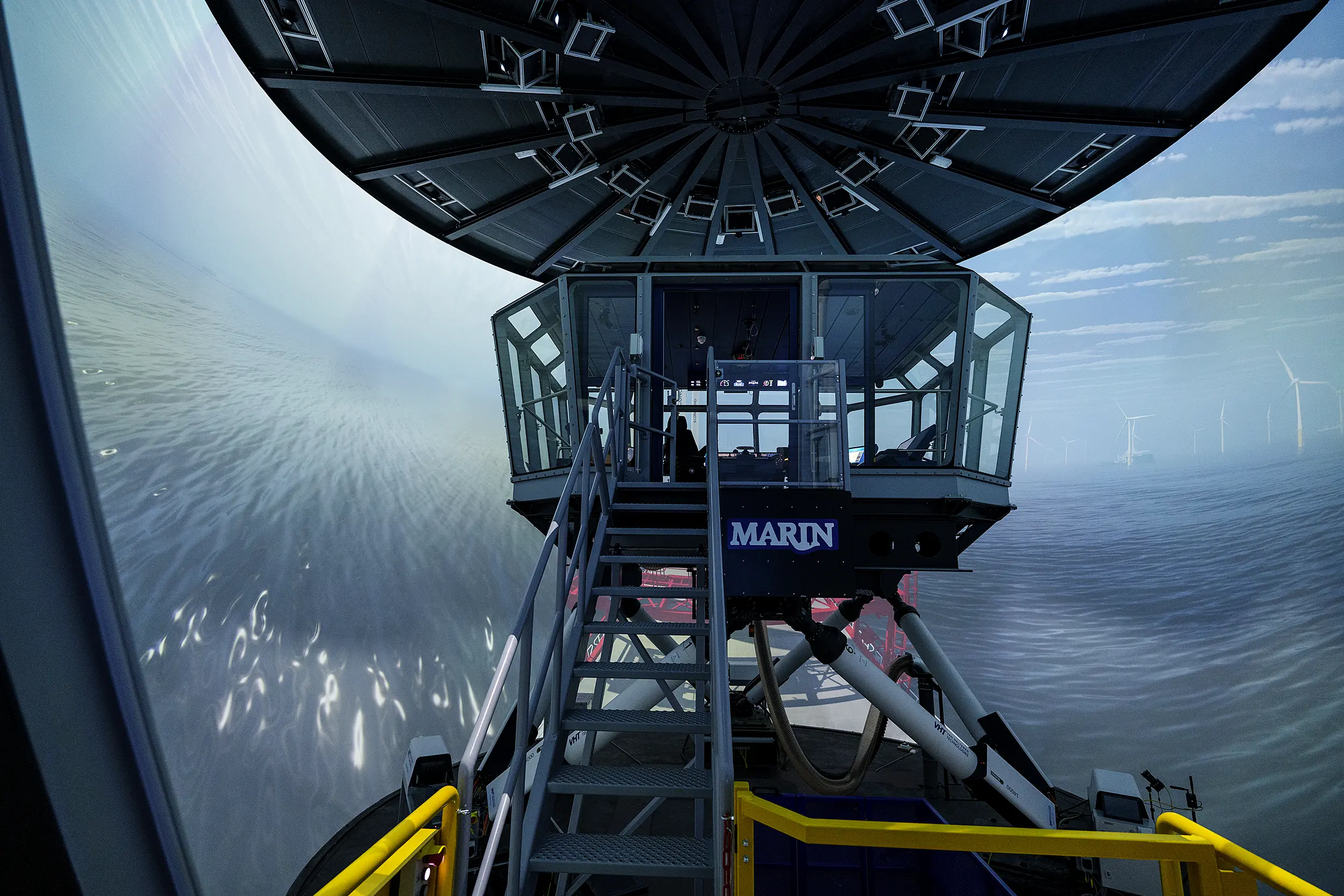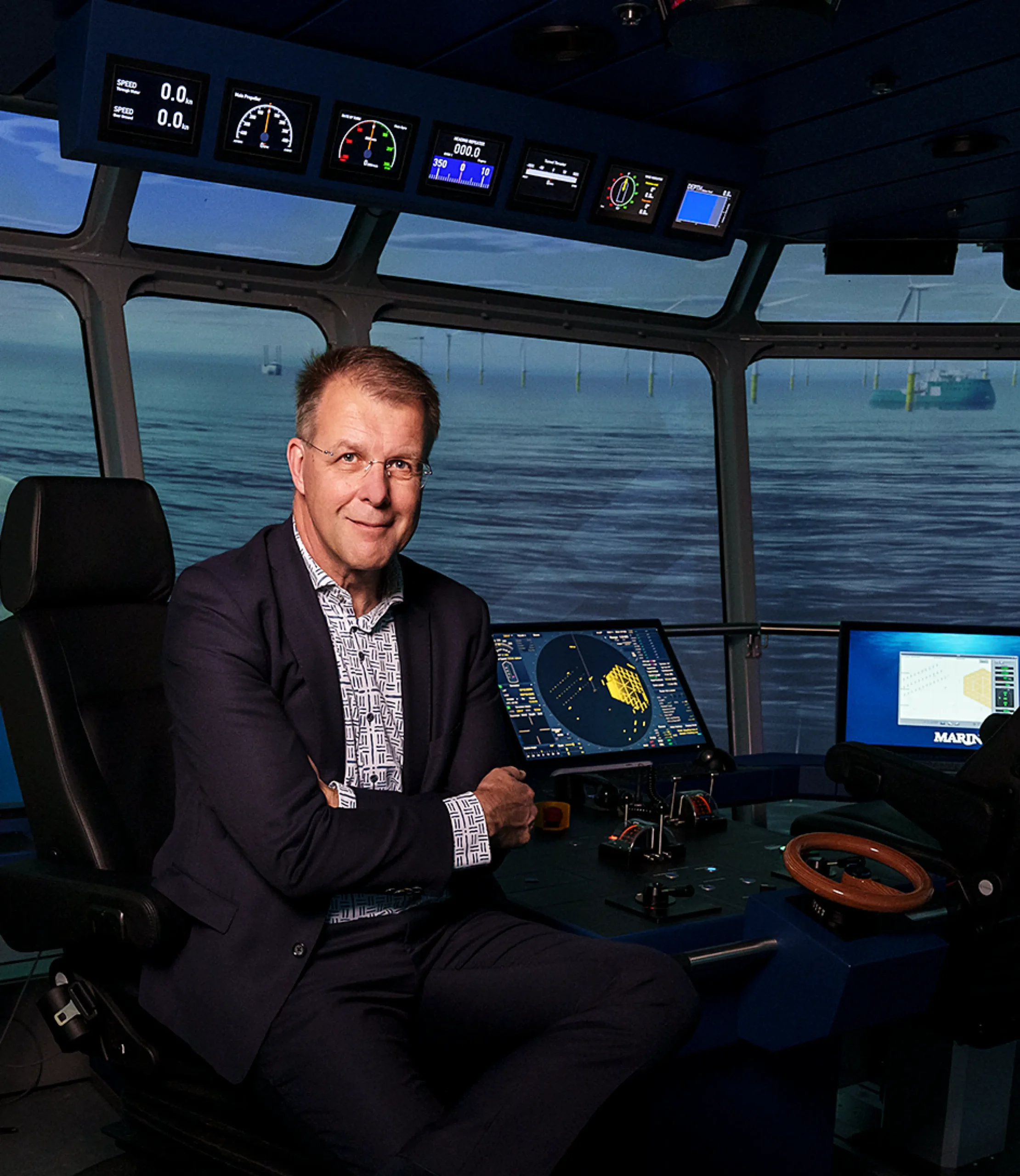What were you like as a student?
“When I started maritime engineering in 1985, I dreaded the prospect of tackling all those incredibly complicated courses. Maths was hardly my strongest subject in secondary school, and one of my maths teachers had even told me to my face that he wasn’t sure whether I was cut out for a STEM (Science, Technology, Engineering & Mathematics, ed.) field. It’s fair to say that his comment stuck with me. Still, it wasn’t as bad as I thought it would be. Although I never got the highest marks, I did just fine. My graduation thesis was a game changer. I decided to sink my teeth into a diffraction issue that had stumped virtually all my fellow students. My supervisor Jo Pinkster gave me the confidence to explore the issue on my own, and I suddenly found myself coming up with insights I’d never had before. Turns out I was a researcher after all.”
How did you end up at MARIN?
Buchner laughs: “Honestly? I was worried that MARIN might be a bit boring at first, but Pinkster insisted that I give them a chance and I was sold the minute I set foot in the building. With its water tanks, simulators and computing power, it’s a veritable playground for marine engineers. We get to play with boats all day long and get paid for it in the process! Unlike a university, we don’t do curiosity-driven research, but practical, customer-oriented research. Everything we do has to somehow help us build a better ship. It suits me, really, because I want to do relevant work and help improve things.”
You soon became a manager and later an executive. Do you still see yourself as a researcher?
“Part of me is a Jack of all trades, which is why I became an executive. But I’m also an engineer at heart, who wants to get to the bottom of things. To be a director of a knowledge institute, you need to understand what research is in order to get the obstacles researchers face. It’s a world that many managers don’t know: they think everything can be planned as long as you have enough roadmaps and targets, but that’s not how research works. I did miss life as a researcher when I first became a manager. Fortunately, I still had lots of leave to take, which I used to write my dissertation. It was both the most exciting thing I’ve ever done and the most fun I’ve ever had. Twenty years later, I still get reactions to it from all over the world.”
Bas Buchner is affiliated with Nederland Maritiem Land (NML) and is one of the initiators behind the Blueprint 2050 vision and the Maritime Master Plan for a Zero-Emission Maritime Sector.
Bas Buchner (1966)
1985-1991 Maritime Engineering at TU Delft (PhD in 2002)
1991-2024 MARIN (since 2011 as Managing Director)
2018 Honorary member of William Froude, the study association for Maritime Engineering
On Tuesday 15 April 2025, Bas Buchner will be presented with the Alumnus of the Year award during the symposium ‘Navigating the Future: AI and Data for Safer, Smarter Shipping’ in the TU Delft Aula. For more information and to register for the symposium, go to alumni.tudelft.nl.
Every year, TU Delft presents the Alumnus of the Year award to a former student who has made a mark in the world of innovation and research. Previous winners include Hester Anderiesen-Le Riche (Tover), Jan-Maarten Geertman (Heineken) and Karin Sluis (Witteveen+Bos).

The bridge simulator at MARIN
After 34 years with MARIN, you’re leaving in 2025. A big step, indeed.
“When I was appointed managing director in 2011, my wife gave me ten years. I ended up staying longer because of the COVID pandemic, but I never forgot about her deadline. Me staying on for another decade would not be in the organisation’s best interests. Still, I am leaving with pain in my heart. Half of my time will go to Nederland Maritiem Land, a partnership between Dutch companies in the maritime sector, in order to keep working on the Maritime Master Plan, a plan developed by the maritime industry to build zero-emission ships. The other half I’d like to devote to research and knowledge sharing.”
What would you tell today’s students?
“I’m an honorary member of William Froude, TU Delft’s Maritime Engineering study association, and students regularly ask me for career advice. All too often, they’ve got their sights set on a broad, managerial role. My question to them is always the same: why not try your hand at research? Challenge yourself to jump in at the deep end – there’s no end to what you will learn. You can always get into management later – all you need is a good dose of common sense.”

